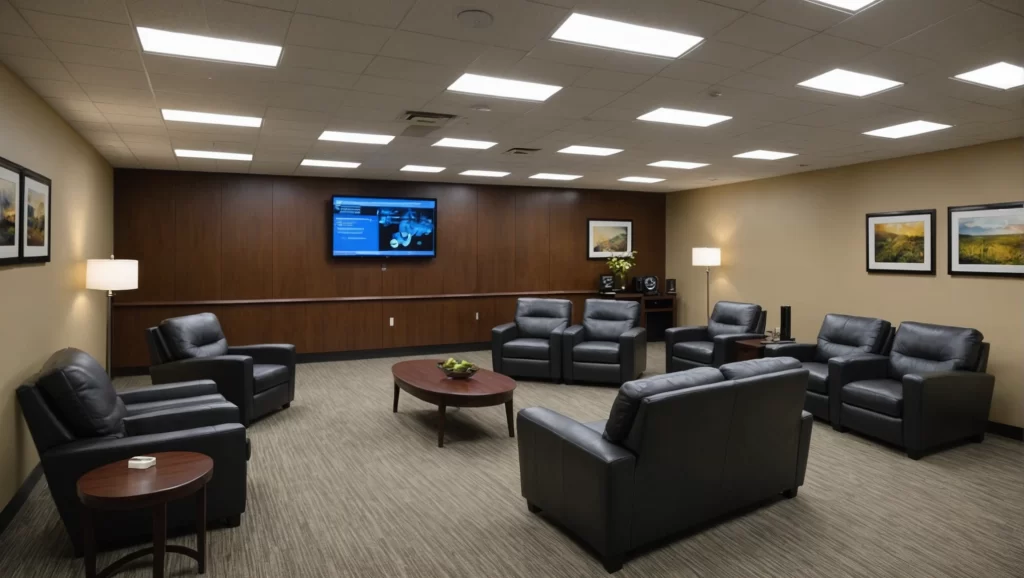The Transformative Power of Professional Addiction Treatment
When searching for quality addiction treatment, you’re making one of the most important decisions of your life. At Ridgeline Recovery, we’ve witnessed how professional addiction therapy services can completely transform lives by addressing not just substance use, but the underlying causes and conditions that fuel addiction. This 2,500-word guide provides an in-depth look at how modern addiction treatment work, what to expect from treatment, and how to find the right program for your needs in Columbus.
Addiction therapy services today go far beyond traditional “talk therapy” – they incorporate cutting-edge, evidence-based approaches that have been scientifically proven to help individuals achieve and maintain sobriety. Whether you’re considering Addiction Treatment for yourself or a loved one, understanding these therapeutic options will help you make the most informed decision about your care.

The Science Behind Effective Addiction Therapy Services
Modern addiction treatment are grounded in decades of neuroscientific research about how addiction affects the brain and behavior. Studies using advanced brain imaging technology have shown that substance use disorders physically alter brain structures involved in:
- Decision-making and impulse control
- Stress regulation
- Reward processing
- Emotional regulation
Quality addiction therapy services work to “rewire” these affected brain circuits through various evidence-based techniques. Research from the National Institute on Drug Abuse shows that comprehensive addiction treatment can help restore normal brain function over time, especially when combined with other recovery supports.
The most effective addiction treatment also address what experts call the “three pillars” of recovery:
- Abstinence – Learning to live without substance use
- Recovery Capital – Building internal and external resources
- Wellness – Improving overall physical and mental health
By addressing all three areas, comprehensive addiction therapy services provide the strongest foundation for long-term Addiction Recovery.
Types of Addiction Treatment Therapy Available
Cognitive Behavioral Therapy (CBT)
As one of the most researched addiction treatment services, CBT helps individuals:
- Identify and change negative thought patterns
- Recognize and avoid triggers
- Develop healthy coping skills
- Build self-efficacy in recovery
Dialectical Behavior Therapy (DBT)
Originally developed for borderline personality disorder, DBT has become one of the most valuable addiction treatment for those with:
- Emotional dysregulation
- Self-harm behaviors
- Multiple relapse history
- Co-occurring mental health conditions
Motivational Interviewing
This client-centered approach used in many addiction therapy services helps resolve ambivalence about change by:
- Exploring personal values and goals
- Developing discrepancy between current behavior and desired outcomes
- Strengthening intrinsic motivation
- Building confidence in ability to change
Trauma-Informed Therapy
Since many with substance use disorders have trauma histories, quality addiction therapy services incorporate:
- EMDR (Eye Movement Desensitization and Reprocessing)
- Trauma-focused CBT
- Somatic experiencing
- Narrative therapy approaches
Family Systems Therapy
Recognizing addiction as a family disease, these addiction treatment services work to:
- Improve communication patterns
- Establish healthy boundaries
- Address enabling behaviors
- Repair damaged relationships
Medication-Assisted Treatment (MAT)
When combined with counseling, MAT provides comprehensive addiction therapy services that:
- Reduce cravings and withdrawal symptoms
- Normalize brain chemistry
- Block the effects of substances
- Improve treatment retention
The Treatment Continuum: Matching Services to Needs
Addiction therapy services exist at various levels of care, allowing individuals to step up or down in intensity as needed:
Inpatient/Residential Treatment
Provides 24/7 addiction treatment ideal for:
- Severe addictions
- Co-occurring disorders
- Those needing structured environment
- Individuals with unstable living situations
Partial Hospitalization Programs (PHP)
Offers intensive addiction treatment services 5-7 days per week while allowing clients to return home evenings.
Intensive Outpatient Programs (IOP)
Provides addiction treatment 3-5 days per week for several hours per day, ideal for those transitioning from higher levels of care.
Standard Outpatient
Weekly addiction therapy services for maintenance and ongoing support in recovery.
Aftercare and Alumni Programs
Continued addiction treatment to prevent relapse and support long-term recovery.

Specialized Addiction Therapy Services
For Professionals
Executive addiction treatment accommodate work schedules with:
- Evening and weekend sessions
- Telehealth options
- Discreet treatment plans
For Young Adults
Developmentally-appropriate addiction treatment services address:
- Peer pressure
- Identity formation
- Educational/vocational needs
- Family dynamics
For LGBTQ+ Individuals
Culturally-competent addiction therapy services provide safe spaces to explore:
- Minority stress
- Coming out issues
- Relationship patterns
- Community support
For Those with Chronic Pain
Specialized addiction treatment help manage:
- Pain without opioids
- Medication dependence
- Alternative coping strategies
- Mind-body connections
What to Expect in Addiction Therapy
Quality addiction therapy services typically follow a structured process:
Initial Assessment
Comprehensive evaluation covering:
- Substance use history
- Physical health
- Mental health
- Social functioning
- Recovery goals
Treatment Planning
Personalized plan outlining:
- Therapy modalities
- Frequency of sessions
- Measurable objectives
- Timeline for progress
Active Treatment Phase
Regular sessions focusing on:
- Skill-building
- Emotional processing
- Behavior change
- Relapse prevention
Discharge Planning
Preparing for next steps including:
- Aftercare arrangements
- Support group connections
- Ongoing therapy needs
- Crisis planning
Measuring Success in Addiction Treatment
Effective addiction therapy services track progress through:
Clinical Outcomes
- Reduced substance use
- Improved mental health symptoms
- Increased days abstinent
- Enhanced life functioning
Personal Growth
- Stronger coping skills
- Healthier relationships
- Improved self-esteem
- Greater life satisfaction
Community Impact
- Stable housing
- Employment/education
- Legal compliance
- Family reconciliation
Overcoming Common Treatment Barriers
Many hesitate to seek addiction therapy services due to:
Financial Concerns
Options exist through:
- Insurance coverage (including Medicaid)
- Sliding scale fees
- Payment plans
- State-funded programs
Time Constraints
Flexible scheduling with:
- Evening/weekend addiction treatment services
- Intensive short-term programs like 2 Week Rehab Near Me
- Telehealth options
Stigma Fears
Professional addiction therapy services provide:
- Confidential environments
- Discreet treatment options
- Non-judgmental support
Integrating Addiction Therapy with Other Supports
For comprehensive recovery, addiction therapy services work best when combined with:
Peer Support
Regular attendance at AA NA Meetings Columbus Ohio provides:
- Shared experience
- Accountability
- Sober social network
- Ongoing motivation
Case Management
A Case Management Center can help coordinate:
- Housing assistance
- Vocational support
- Legal aid
- Healthcare navigation
Holistic Approaches
Complementary therapies enhance addiction therapy services through:
- Mindfulness practices
- Nutritional counseling
- Exercise programs
- Creative arts therapies
Finding Quality Addiction Therapy Services
When searching for Addiction Therapy Near Me, look for programs that:
- Are licensed and accredited
- Employ credentialed clinicians
- Use evidence-based practices
- Offer personalized treatment plans
- Provide comprehensive aftercare
At Ridgeline Recovery, our addiction treatment meet all these criteria while providing compassionate, individualized care.
The Future of Addiction Therapy Services
Emerging trends in addiction treatment include:
- Increased use of telehealth platforms
- Integration of artificial intelligence for personalized care
- Advanced neurofeedback techniques
- Greater focus on whole-person wellness
- Enhanced family involvement models

Trivia: Historical Milestones in Addiction Treatment
The first organized addiction therapy services emerged in the late 18th century with temperance movements. The 1935 founding of Alcoholics Anonymous revolutionized peer support. The 1970s brought the first evidence-based behavioral therapies. Today’s addiction treatment services combine decades of research with compassionate care.
Frequently Asked Questions
How do I know if I need professional addiction treatment services?
If substance use causes problems in your life but you struggle to quit or cut back, professional help may be beneficial.
What’s the difference between counseling and addiction treatment services?
While similar, addiction treatment services typically involve more specialized training and evidence-based protocols for substance use disorders.
Can addiction treatment services help if I’ve relapsed before?
Absolutely. Quality addiction therapy services help identify relapse triggers and strengthen prevention strategies.
How long should I participate in addiction treatment services?
Research shows better outcomes with longer engagement, but even short-term addiction treatment services can provide significant benefits.
Taking the First Step Toward Healing
If you’re ready to explore how addiction treatment services can help you or a loved one, contact Ridgeline Recovery today. Our team will help you navigate treatment options and find the right level of care. Remember – recovery is possible, and it starts with reaching out for help. Your journey to wellness begins today.



